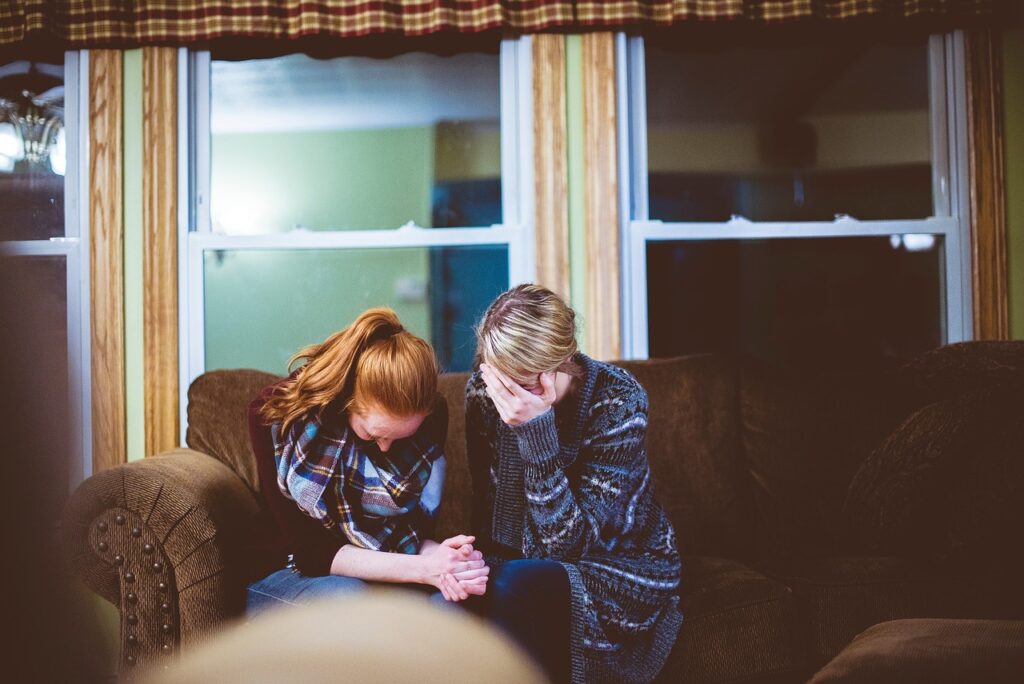 The holiday season is often depicted as a time of joy, celebration, and togetherness. Advertisements, movies, and social media posts paint a picture of families gathering around tables laden with festive feasts, exchanging gifts, and creating cherished memories. However, for those who are grieving the loss of a loved one, the holiday season can evoke a unique blend of emotions, ranging from sadness and longing to guilt and isolation. Navigating the festive seasons while mourning requires compassion, self-care, and a deeper understanding of how grief can shape our experiences during this time.
The holiday season is often depicted as a time of joy, celebration, and togetherness. Advertisements, movies, and social media posts paint a picture of families gathering around tables laden with festive feasts, exchanging gifts, and creating cherished memories. However, for those who are grieving the loss of a loved one, the holiday season can evoke a unique blend of emotions, ranging from sadness and longing to guilt and isolation. Navigating the festive seasons while mourning requires compassion, self-care, and a deeper understanding of how grief can shape our experiences during this time.
The Contradiction of Grief and Celebration
Grief is a complex and individual journey, often defying easy categorization or timeline. When the holiday season arrives, the clash between the external atmosphere of celebration and the internal landscape of grief can be jarring. It’s not uncommon for individuals who are grieving to feel like outsiders, observing a world that seems to have moved on while they are still struggling to come to terms with their loss.
The expectation to engage in holiday festivities and put on a cheerful facade can intensify feelings of isolation and disconnect. Grief is not confined by calendar dates, and it’s essential to recognize that it’s okay to experience a range of emotions during this time. Acknowledging and allowing yourself to feel these emotions is a crucial step towards navigating the holidays while mourning.
Honoring Your Feelings
During the holiday season, it’s essential to give yourself permission to honor your feelings and needs. Suppressing grief in an effort to conform to societal expectations can lead to increased emotional distress. Instead, allow yourself the space to grieve in whatever way feels authentic to you.
If participating in certain traditions or gatherings feels too overwhelming, consider giving yourself the freedom to opt-out or modify your level of involvement. Grief requires energy and emotional resources, and it’s important to prioritize self-care and preservation during this time.
Creating New Traditions and Rituals
While grieving, the prospect of engaging in familiar holiday traditions might be painful. However, this can also present an opportunity to create new rituals that honor the memory of your loved one. Lighting a candle in their memory, preparing a favorite dish, or crafting a memorial ornament can provide a sense of connection and solace.
Involving others who share in your grief can foster a supportive and healing environment. Family and friends who also mourn the same person can collaborate on creating new traditions that pay tribute to their memory and provide comfort to all involved.
Effective Communication
Effective communication is vital when navigating the holiday season while grieving. If you’re comfortable, share your feelings and needs with those close to you. Let them know if certain topics or activities are particularly challenging, and express how they can support you during this time.
For those supporting someone who is grieving, approach the conversation with empathy and sensitivity. Offer a listening ear, and avoid pressuring them to conform to holiday expectations. Sometimes, the simple act of acknowledging their grief and being present can provide immense comfort.
Managing Expectations
One of the most challenging aspects of grieving during the holidays is managing the expectations of others. Friends and family members may unintentionally place pressure on you to “move on” or “be happy” for the sake of the season. It’s important to remember that grief is a unique process, and there is standard and rigid way to navigate it.
Setting boundaries and being assertive about your needs can help manage these external pressures. Politely but firmly communicate your limitations and let others know that you’re taking things one step at a time.
Seeking Support
The holiday season can amplify feelings of loneliness, especially for those who are mourning. Seeking support from others who understand your experience can be incredibly beneficial. Support groups, therapy, or counseling provide safe spaces to share your feelings, gain insights, and learn coping strategies specifically tailored to the challenges of grieving during the holidays.
If you find yourself struggling, reaching out to a mental health professional can provide valuable guidance and support. They can help you navigate the complex emotions that arise during this time and offer tools to manage your grief in a healthy and constructive way.
Finding Meaning and Gratitude
While grieving during the holidays can be intensely difficult, it’s also an opportunity to find meaning and gratitude amidst the pain. Reflect on the cherished memories you shared with your loved one and the positive impact they had on your life. Engage in activities that bring you a sense of comfort and joy, even if they are simple.
Gratitude can act as a powerful balm for a grieving heart. Focusing on the moments of connection, the love shared, and the lessons learned from your loved one can help shift the perspective from loss to a celebration of their life and the impact they had on you.
In Conclusion
Grief and the holidays can intertwine in complex ways, evoking a range of emotions that may seem at odds with the festive spirit. Navigating this period while mourning requires self-compassion, effective communication, and the willingness to honor your feelings. Creating new traditions, seeking support, and finding meaning amidst the pain can help you find a sense of solace and healing during this challenging time. Remember that grief is a deeply personal journey, and it’s okay to prioritize your well-being and emotional needs as you navigate the path of mourning during the holiday season.
FREE Download - "Short Poems on Grief and Loss"
